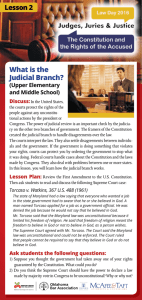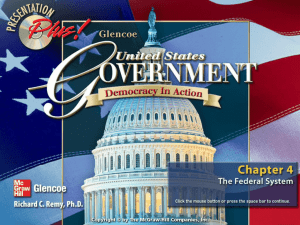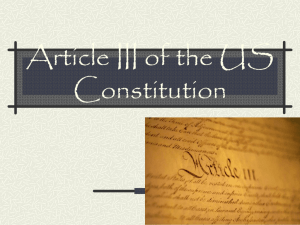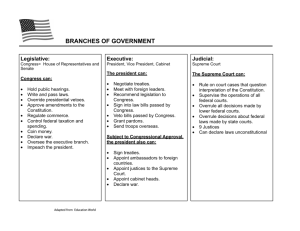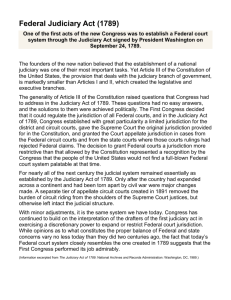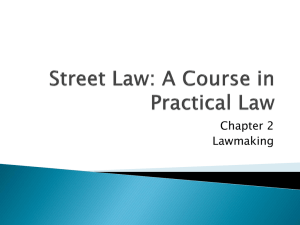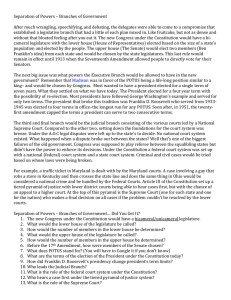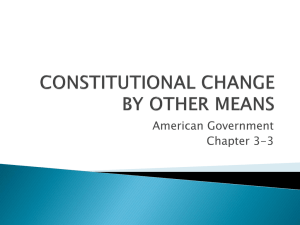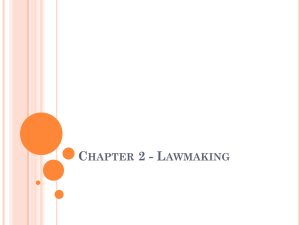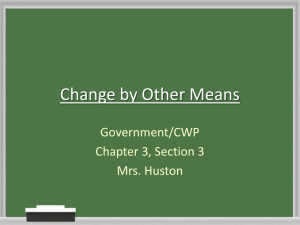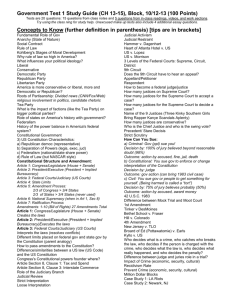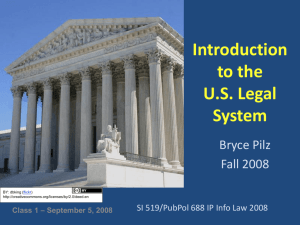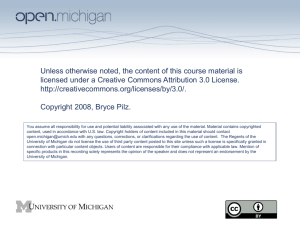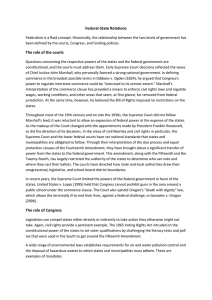The Judiciary Act of 1789
advertisement
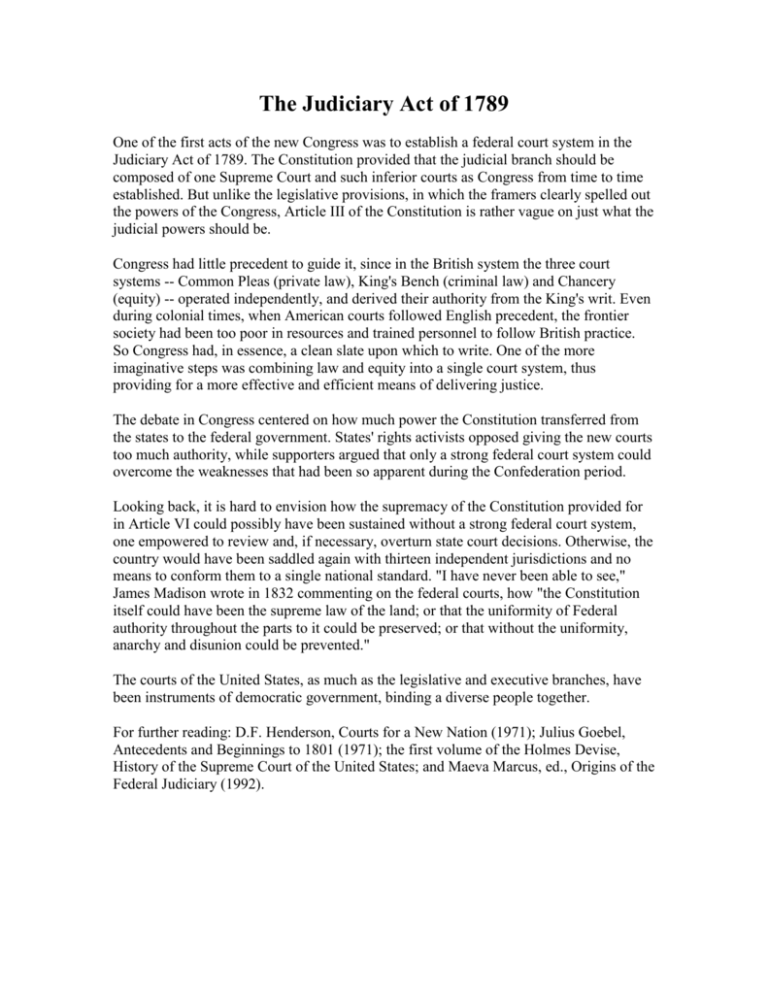
The Judiciary Act of 1789 One of the first acts of the new Congress was to establish a federal court system in the Judiciary Act of 1789. The Constitution provided that the judicial branch should be composed of one Supreme Court and such inferior courts as Congress from time to time established. But unlike the legislative provisions, in which the framers clearly spelled out the powers of the Congress, Article III of the Constitution is rather vague on just what the judicial powers should be. Congress had little precedent to guide it, since in the British system the three court systems -- Common Pleas (private law), King's Bench (criminal law) and Chancery (equity) -- operated independently, and derived their authority from the King's writ. Even during colonial times, when American courts followed English precedent, the frontier society had been too poor in resources and trained personnel to follow British practice. So Congress had, in essence, a clean slate upon which to write. One of the more imaginative steps was combining law and equity into a single court system, thus providing for a more effective and efficient means of delivering justice. The debate in Congress centered on how much power the Constitution transferred from the states to the federal government. States' rights activists opposed giving the new courts too much authority, while supporters argued that only a strong federal court system could overcome the weaknesses that had been so apparent during the Confederation period. Looking back, it is hard to envision how the supremacy of the Constitution provided for in Article VI could possibly have been sustained without a strong federal court system, one empowered to review and, if necessary, overturn state court decisions. Otherwise, the country would have been saddled again with thirteen independent jurisdictions and no means to conform them to a single national standard. "I have never been able to see," James Madison wrote in 1832 commenting on the federal courts, how "the Constitution itself could have been the supreme law of the land; or that the uniformity of Federal authority throughout the parts to it could be preserved; or that without the uniformity, anarchy and disunion could be prevented." The courts of the United States, as much as the legislative and executive branches, have been instruments of democratic government, binding a diverse people together. For further reading: D.F. Henderson, Courts for a New Nation (1971); Julius Goebel, Antecedents and Beginnings to 1801 (1971); the first volume of the Holmes Devise, History of the Supreme Court of the United States; and Maeva Marcus, ed., Origins of the Federal Judiciary (1992).

